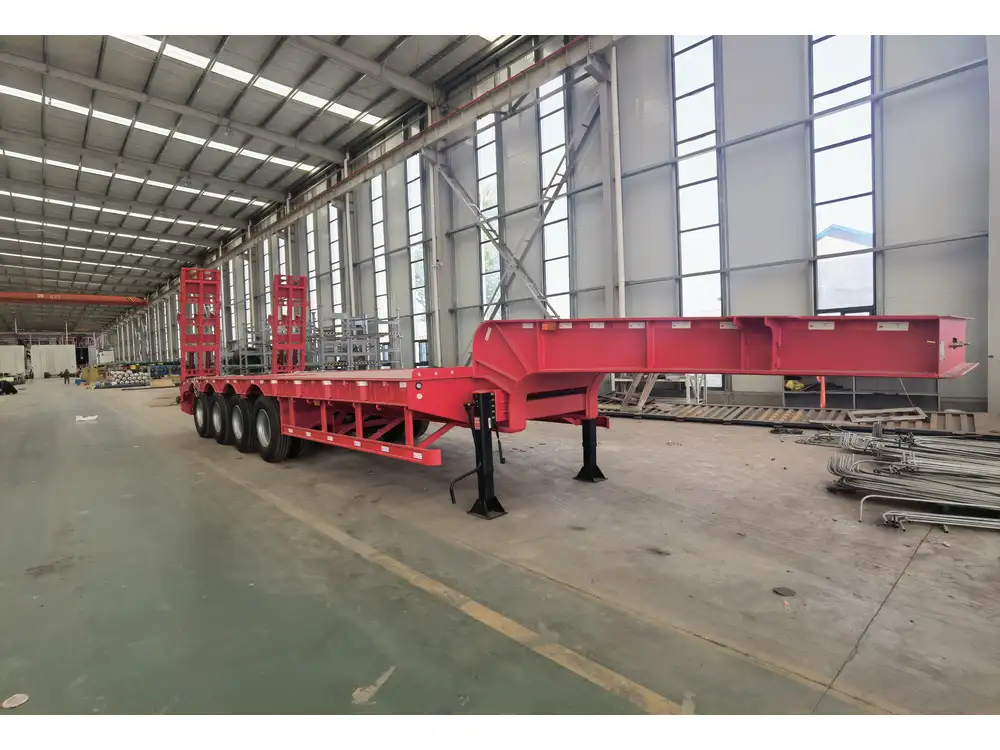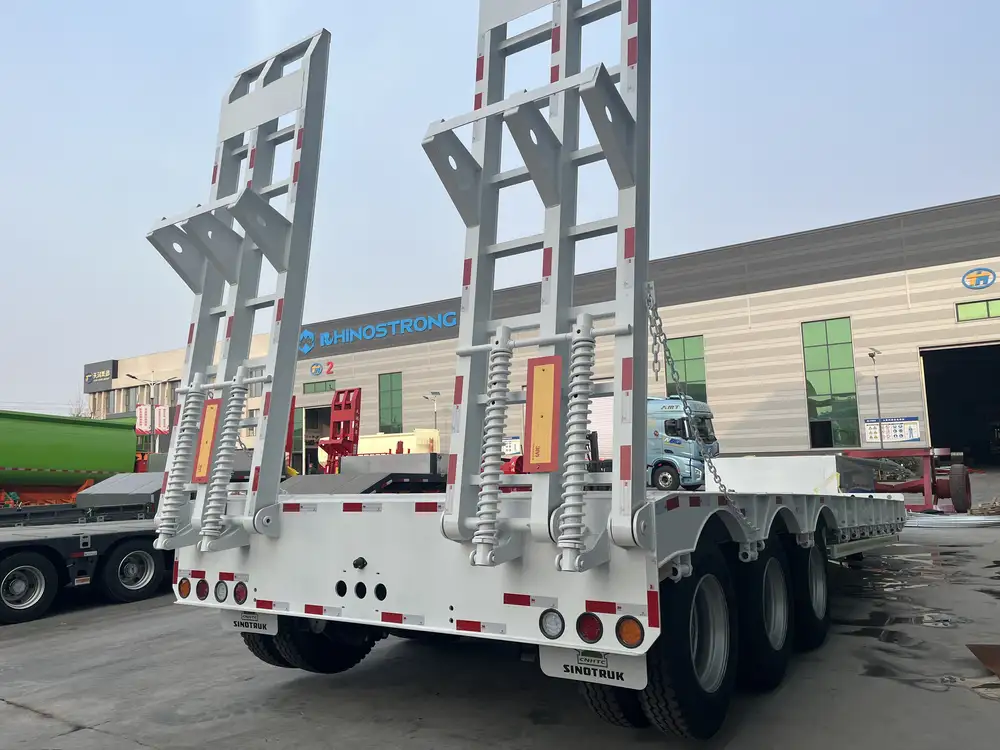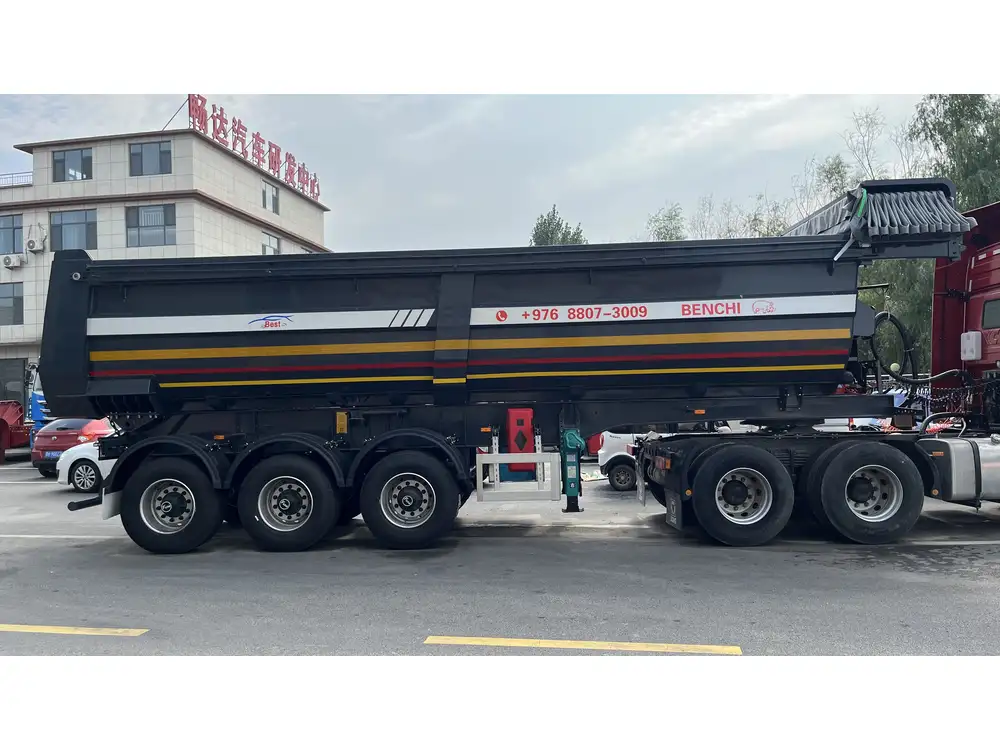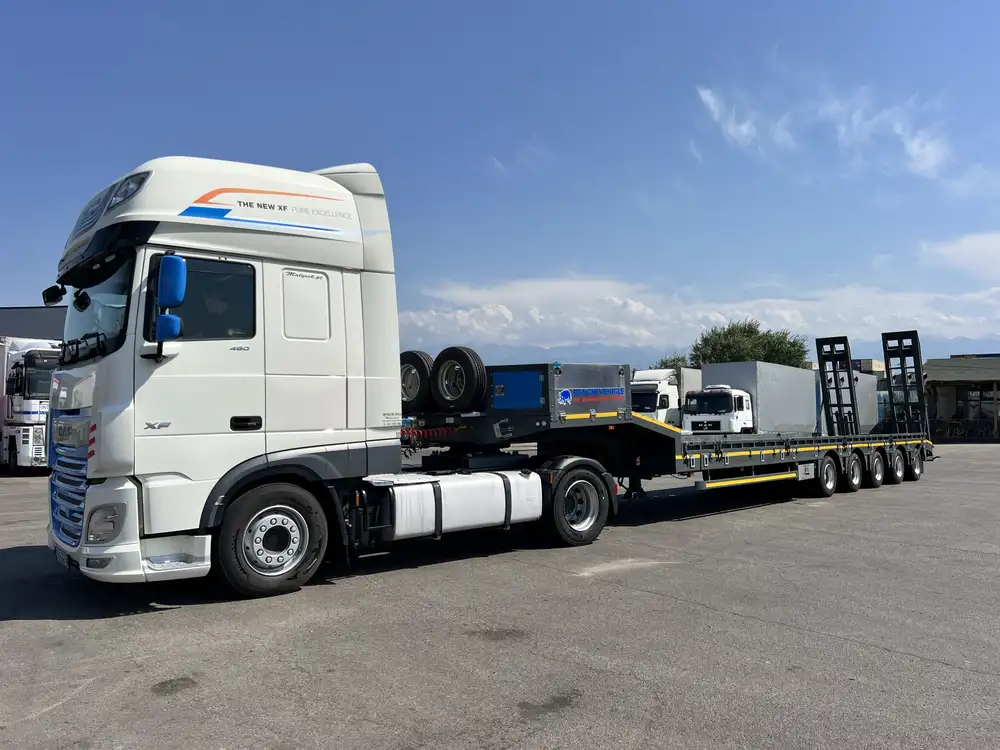When it comes to the transportation industry, compliance with safety regulations and adherence to legal protocols is paramount. This holds particularly true for semi-trailers, which are crucial in the movement of goods across extensive distances. A question that arises frequently among drivers, fleet operators, and transportation officials is, “Is leaving the semi-trailer door open while driving illegal?” This article dissects the implications, safety concerns, and legal ramifications surrounding this issue, providing thorough insights that can aid decision-making for manufacturers, drivers, and logistics managers alike.
Understanding Regulations and Safety Standards
Federal and State Regulations
In the United States, various federal and state regulations govern the operation of commercial vehicles, including semi-trailers. While there is no universal federal law explicitly prohibiting open trailer doors, multiple rules encompass aspects of vehicle safety and cargo securement that could render driving with an open door illegal under certain conditions.

Key Regulations to Consider:
Federal Motor Carrier Safety Administration (FMCSA) Guidelines:
- The FMCSA sets forth stringent regulations that commercial vehicles must adhere to, particularly in terms of cargo safety and control. Violations of these regulations can lead to hefty fines and penalties for trucking companies and drivers.
State Laws Vary:
- Each state may have its own specific laws concerning vehicle operation. For instance, some states may prohibit open trailer doors if they pose a clear danger to other road users.
Cargo Securement Standards:
- The FMCSA outlines guidelines for securement of cargo. An open trailer door may violate these standards if its closure is deemed necessary for cargo integrity and safety.
Implications for Freight Transport
Operating a semi-trailer with its doors ajar can have significant implications, ranging from logistical inefficiencies to safety hazards. The possible outcomes include:
- Cargo Loss or Damage: A semi-trailer door left open can lead to unsecured cargo spilling onto the roadway, resulting in loss and potential damage claims.
- Increased Liability: If an accident occurs because the trailer’s door was left open, the driver or their employer could be held liable for damages or injuries.
- Traffic Violations: Depending on local law enforcement’s interpretation of road safety, drivers could incur citations for operating vehicles in an unsafe manner.
Comparing Risks: Open Door vs. Closed Door
| Risk Factor | Open Doors | Closed Doors |
|---|---|---|
| Cargo Integrity | High risk of spillage | Secure cargo minimizes loss |
| Road Safery | Potential debris on the roadway | Safer for all road users |
| Legal Consequences | Possible fines and penalties | Compliance with safety regulations |
| Insurance Issues | Higher likelihood of claims | Lower risk, potentially reduced premiums |

Safety Concerns Regarding Open Semi-Trailer Doors
When considering the legality of driving with an open semi-trailer door, one must factor in the inherent safety risks. Here are critical safety concerns related to this practice:
1. Road Hazard Creation
An open semi-trailer door can act as a significant hazard. Unsecured cargo can fall onto the roadway, leading to accidents involving other drivers. Not only does this pose risks for other vehicles, but it can also result in monumental legal implications for the trucking company and driver involved.
2. Reduced Visibility
Driving with open doors can obstruct the driver’s view, especially if large items are loaded within the trailer. This impaired visibility can lead to heightened risk situations on busy highways or in urban areas.

3. Regulatory Compliance
All trucking companies must place a high priority on compliance with the law to avoid penalties. Companies that fail to ensure that semi-trailers are closed as required may face heavy fines and an increased likelihood of audits from regulatory agencies.
Consequences of Driving with Open Semi-Trailer Doors
Driving with an open semi-trailer door can lead to a plethora of consequences beyond immediate safety concerns. Below are notable repercussions:
Legal Repercussions
- Fines and Penalties: Law enforcement may issue fines for unsafe driving practices or failure to secure cargo.
- Increased Insurance Premiums: A history of violations related to open trailer doors may result in higher insurance premiums for trucking companies, as insurers assess risk based on past behavior.

Operational Impact
- Downtime Due to Violations: If a truck is pulled over for having its doors open, it can lead to delays in deliveries, impacting overall operational efficiency.
- Reputation Damage: Consistent violations can tarnish a company’s reputation, causing clients to reconsider their partnerships with businesses that cannot adhere to safety norms.
Mitigating Risks: Best Practices for Semi-Trailer Operation
Given the complexities surrounding the legality and safety of semi-trailers, prudent practices are essential. Here are actionable steps to mitigate risks associated with trailer door operation:
1. Always Secure Cargo
Prior to leaving the loading area, ensure that all cargo is secure. This includes properly shutting the trailer doors and implementing securement devices that comply with FMCSA regulations.

2. Conduct Routine Inspections
Regular inspections of the semi-trailer and its doors can prevent operational hazards. Look for any signs of malfunction, such as faulty locks or hinges.
3. Train Drivers on Safety Protocols
Implement comprehensive training sessions for drivers that emphasize the importance of closing trailer doors and securing cargo. This should include hands-on training and regular refreshers.
4. Use Technology
Consider investing in technology that alerts drivers if trailer doors are not fully secured while the vehicle is in motion. This added layer of safety can mitigate risks effectively.

5. Maintain Documentation
Keep thorough records of cargo securement and vehicle inspections. This documentation can serve as evidence of compliance in the event of legal scrutiny.
Comprehensive Understanding of Legal Standing
Case Studies and Legal Precedents
Case Study: Smith v. Transportation Co.: A landmark case where an open trailer door during transport resulted in significant cargo loss. The ruling emphasized strict adherence to cargo securement standards, influencing industry practices.
Legal Precedent: Courts have consistently ruled in favor of plaintiffs involved in accidents caused by unsecured cargo, solidifying the necessity for compliance with safety regulations.

Locale-specific Regulations
Understanding local laws is crucial. Consult with local transportation authorities to develop a solid legal framework for operation. Laws can differ significantly across states, and ignorance can lead to severe penalties.
Conclusion
In conclusion, the question of whether leaving semi-trailer doors open while driving is illegal involves multifaceted considerations of safety, legal regulations, and best practices. While there may not be a direct law prohibiting the practice, the potential for accidents and legal liabilities is substantial. Trucking companies and drivers must prioritize safety through comprehensive measures, including securing cargo and adhering to regulatory guidelines. By fostering a culture of compliance and thorough understanding of the implications, the industry can mitigate risks and enhance safety for all road users.
This nuanced, rich exploration of the topic illuminates the gravity of such an apparently simple action as the operation of semi-trailer doors, thereby equipping stakeholders with the knowledge needed to navigate this critical aspect of transportation law and safety.



